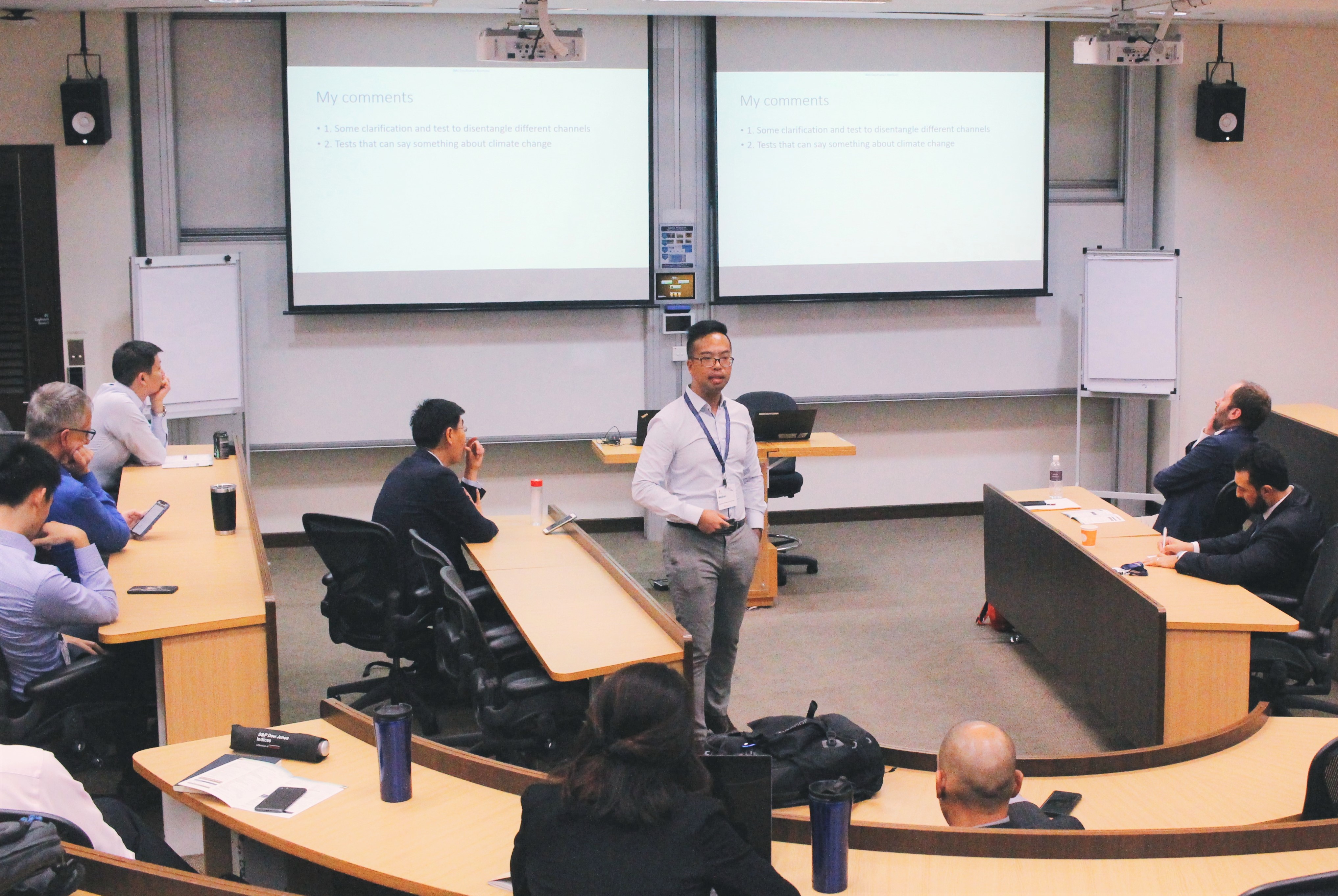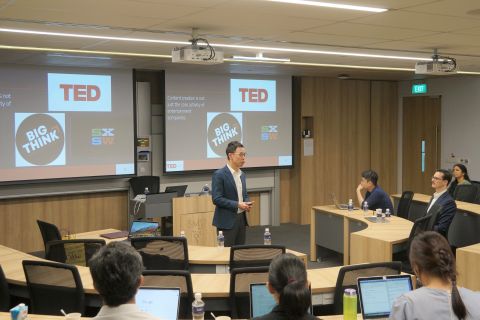
SMU Office of Research & Tech Transfer – The discussion on climate change and sustainability has taken centre stage in recent years. It reached a new level of fervour on 20 September 2019, when Swedish teenager Greta Thunberg led the largest climate strike in history, one that inspired an estimated four million people across 161 countries to join in.
Meanwhile, governments and multinational corporations have stepped up their anti-plastic agenda, implementing bans on single-use plastic products that often find their way into the oceans.
In the finance industry, while socially responsible investing has been around for decades, it seems to have reached an inflection point. From 2016 to 2018, sustainable, responsible and impact (SRI) investing grew more than 38 percent, according to a report by the US SIF: The Forum for Sustainable and Responsible Investment. The Global Sustainable Investment Alliance also noted that in 2016, US$23 trillion, or 26 percent of all assets under management, took account of environmental, social and governance (ESG) issues.
“Traditionally, portfolio performances tend to be evaluated based on financial measures alone. But over the past ten years, we see that increasingly, investors are also taking into account environmental or social issues when they make investment decisions,” said Singapore Management University (SMU) Assistant Professor Liang Hao, who moderated the Research in Sustainable Finance workshop at the 9th Annual Sim Kee Boon Institute for Financial Economics (SKBI) Conference.
Organised in partnership with the TBLI Group of the Netherlands, the two-day conference was held on 7 to 8 November 2019 with a focus on the emerging research area of sustainable finance.
Effects of climate change felt everywhere
When discussing climate change, Jawad Addoum, Assistant Professor of Finance at Cornell University, noted that the long-term rise in the average temperature of the Earth is just one of the many existential threats we are facing. “While it is certain that mean temperatures are rising, extreme weather events are also becoming more prevalent on a global scale. That is, the prevalence of cold and warm temperature extremes has increased,” he explained.
But despite the scientific evidence in support of climate change, little is known about how climate risks affect earnings and valuations in the corporate sector in the United States. This lack of evidence comes with potentially important consequences, Professor Addoum argued in the paper ‘Temperature Shocks and Earnings News’, which he co-authored.
“This issue is not just important from an academic perspective, but it is also immensely useful for institutional investors as well, as it helps them to understand the impact of exposure to extreme temperatures on company earnings,” he said. In addition, the awareness plays a role in policy making, enabling lawmakers to craft policies that can mitigate the effects of climate change more effectively.
While earlier studies had found that the effects of rising temperatures on the economy are confined to developing countries, Professor Addoum’s study highlighted that even the most developed countries are not immune across a wide range of sectors.
“Given the scientific evidence on climate change and the potentially dramatic damages to the global economy, the findings of this paper are of significant contribution to the field,” said SMU Assistant Professor Li Weikai.
Signatories have different ESG strategies, yet limited influence on portfolios’ ESG scores
While there has been a clear growth in interest for SRI investing in asset management, there remains a dearth of data on how institutional investors implement sustainability in their processes.
“It is not clear what are the strategies deployed, and whether they are effective in promoting environmental and social outcomes at the portfolio level,” said Philipp Krueger, Associate Professor of Responsible Finance at the University of Geneva. “Moreover, it is not understood whether these approaches to sustainable investing carry associated risks and trade-offs.”
One of the largest investment networks promoting sustainable finance is the United Nations-supported Principles for Responsible Investment (PRI). Launched in 2006, it aims to understand the implications of ESG factors for investors and support its signatories in incorporating these factors into their investment decisions. It has since grown to comprise over 2,000 signatories from around the world.
The paper, ‘Responsible Institutional Investing Around the World’, of which Professor Krueger is a co-author, looks at PRI and non-PRI investments and how well they do for the environment. “What we found was, PRI signatories do not in fact have significantly higher environmental or social scores for their portfolios compared to non-PRI signatories,” Professor Krueger said. In addition, their implementation strategies showed very limited effect on portfolio-level ESG performance.
Associate Professor Johan Sulaeman from the National University of Singapore presented his dataset on US companies to offer an explanation for the findings outlined in Krueger’s paper. He found that companies with higher ESG scores could very well be the ones besieged by environmental and social issues. “It could be that when you have issues in one aspect, you would want to do more in another to try and cover that up,” he said.
Questioning the reliability of ESG ratings
Cautioning against the reliability of the ESG ratings, Professor Dragon Yongjun Tang, Professor of Finance and Associate Director of the Centre for Financial Innovation and Development at the University of Hong Kong, noted that electric car manufacturer Tesla garnered a low environmental score in some ESG ratings despite being one of the most climate-conscious companies.
Unreliable ratings are fundamentally disruptive to the SRI ecosystem, Professor Tang noted. “If the accuracy of the ratings cannot be assessed, then its application becomes vague, and that makes it difficult to measure success or failure. Ratings could be also inflated, and as critics have pointed out, might be subjective and driven by self-interest,” he said.
In the concluding discussion, Assistant Professor Zhu Qifei of Nanyang Technological University, Singapore, emphasised the importance of having a reliable ESG rating system for companies to refer to. “All over the world, asset owners are increasingly relying on these ratings to make efficient investment decisions,” he noted.
While most asset owners carry out their own assessments, they still use ESG ratings as a benchmark. The fact that the ESG rating industry is becoming more concentrated is thus a great cause for concern, Professor Zhu said. “This would make the field susceptible to abuse, which is counter-productive to the climate-change agenda,” he said.
Back to Research@SMU Nov 2019 Issue
See More News
Want to see more of SMU Research?
Sign up for Research@SMU e-newslettter to know more about our research and research-related events!
If you would like to remove yourself from all our mailing list, please visit https://eservices.smu.edu.sg/internet/DNC/Default.aspx

